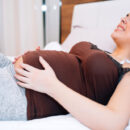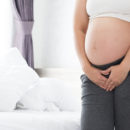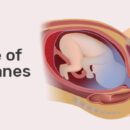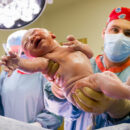
Cambridge Childbirth Pain Relief Study
Scientists at the University of Cambridge may have at last come up with an explanation as to why some women experience significantly less pain than others during childbirth.
The study, which was published in the journal Cell Reports in July, found that around one in 100 women carries a genetic variant which indicates a much higher pain threshold than is found in the remaining 99 percent of the population.
The gene effectively acts as a kind of natural epidural, thereby negating the need for carriers to receive any childbirth pain relief. It is thought that those with the gene have nerve cells that are less effective at communicating pain signals to the brain, which helps to explain why they are able to give birth without an epidural or, in many cases, without any pain relief at all.
The study involved women who had previously given birth without pain relief being asked to perform a number of tasks that were designed to test their resistance to pain and discomfort. For example, they were exposed to uncomfortable levels of heat and at other times were asked to immerse their hands and arms into icy water. Women who had previously given birth with the assistance of pain relief were subjected to the same tests. Interestingly, those who had given birth without pain relief demonstrated a significantly higher tolerance to painful and uncomfortable stimuli.
It is interesting to note that the study also included women who had only given birth once; it is more unusual for first-time mothers to not require gas and air, epidural or any other form of pain relief.
The pain relief gene
The gene identified by the researchers is known as KCNG4. It plays a vital role in producing a protein “gate” that helps to manage the electric “pain” signals that are trafficked along our nerve cells into our brains.
“The genetic variant that we found in women who feel less pain during childbirth lead s to a ‘defect’ in the formation of the switch on the nerve cells,” explained the study’s co-author Ewan St. John Smith from the University of Cambridge’s department of pharmacology. “In fact, this defect acts like a natural epidural.”
In effect, this means that for carriers of the variant to experience strong sensations of pain, they need much more intense pain stimuli in order to trigger the body’s pain response.
The authors said they believe the study will clear the way for exciting developments in childbirth pain relief.










